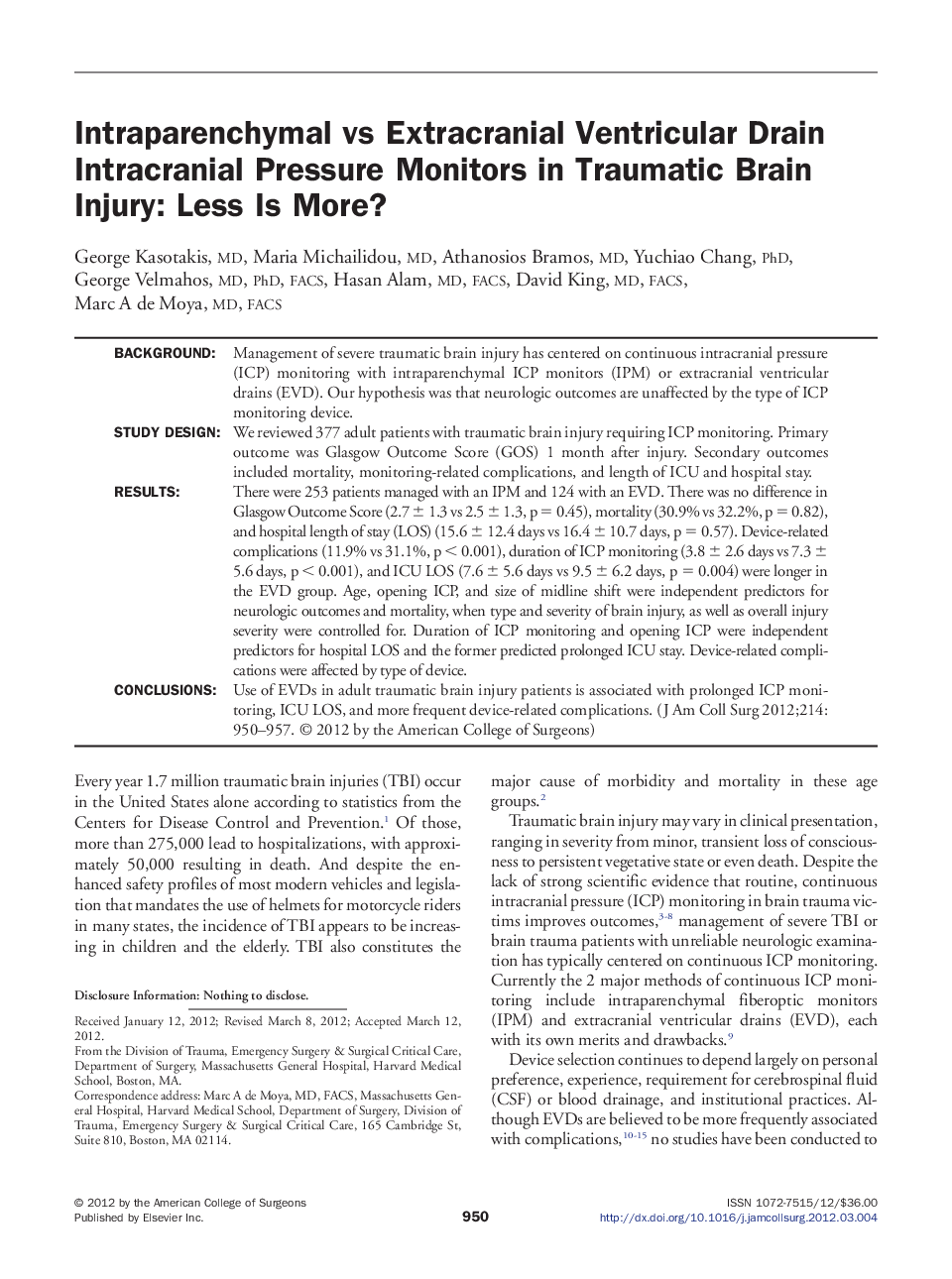| Article ID | Journal | Published Year | Pages | File Type |
|---|---|---|---|---|
| 4293315 | Journal of the American College of Surgeons | 2012 | 8 Pages |
BackgroundManagement of severe traumatic brain injury has centered on continuous intracranial pressure (ICP) monitoring with intraparenchymal ICP monitors (IPM) or extracranial ventricular drains (EVD). Our hypothesis was that neurologic outcomes are unaffected by the type of ICP monitoring device.Study DesignWe reviewed 377 adult patients with traumatic brain injury requiring ICP monitoring. Primary outcome was Glasgow Outcome Score (GOS) 1 month after injury. Secondary outcomes included mortality, monitoring-related complications, and length of ICU and hospital stay.ResultsThere were 253 patients managed with an IPM and 124 with an EVD. There was no difference in Glasgow Outcome Score (2.7 ± 1.3 vs 2.5 ± 1.3, p = 0.45), mortality (30.9% vs 32.2%, p = 0.82), and hospital length of stay (LOS) (15.6 ± 12.4 days vs 16.4 ± 10.7 days, p = 0.57). Device-related complications (11.9% vs 31.1%, p < 0.001), duration of ICP monitoring (3.8 ± 2.6 days vs 7.3 ± 5.6 days, p < 0.001), and ICU LOS (7.6 ± 5.6 days vs 9.5 ± 6.2 days, p = 0.004) were longer in the EVD group. Age, opening ICP, and size of midline shift were independent predictors for neurologic outcomes and mortality, when type and severity of brain injury, as well as overall injury severity were controlled for. Duration of ICP monitoring and opening ICP were independent predictors for hospital LOS and the former predicted prolonged ICU stay. Device-related complications were affected by type of device.ConclusionsUse of EVDs in adult traumatic brain injury patients is associated with prolonged ICP monitoring, ICU LOS, and more frequent device-related complications.
